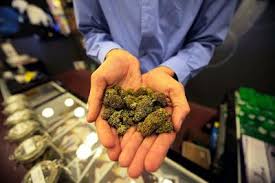Navigating Arthritis with Nature’s Aid: Medical Cannabis Insights
Arthritis, an umbrella term for various joint disorders causing pain and limited mobility, poses a significant challenge to millions around the world. As conventional treatments often fall short of providing comprehensive relief, attention has turned to alternative solutions. Among these, medical cannabis has garnered attention for its potential in alleviating arthritis symptoms. This article aims to provide insights into the role of medical cannabis as a natural aid in navigating the complexities of arthritis.
Arthritis and the Quest for Relief
Arthritis encompasses a range of conditions, including osteoarthritis and rheumatoid arthritis, characterized by joint inflammation and pain. Osteoarthritis arises from wear and tear, resulting in cartilage breakdown and pain. Rheumatoid arthritis involves the immune system attacking joints, leading to inflammation and joint damage. Standard treatments include pain relievers, anti-inflammatory drugs, and physical therapy, yet these approaches often offer limited efficacy and can induce side effects.
Embracing the Potential of Medical Cannabis
Medical Cannabis & Arthritis, derived from the Cannabis sativa plant, contains cannabinoids such as THC and CBD. These compounds interact with the endocannabinoid system, influencing pain perception, inflammation, and immune responses.
- Pain Management: Both THC and CBD exhibit analgesic properties. THC affects brain receptors, altering pain perception, while CBD impacts pain and inflammation pathways. This interaction holds promise in alleviating arthritis-related pain.
- Inflammation Reduction: Chronic inflammation is a hallmark of arthritis. CBD, in particular, demonstrates anti-inflammatory effects by targeting immune response pathways. This property suggests that medical cannabis could potentially mitigate joint damage and provide pain relief.
- Neuroprotection: Some studies propose that cannabinoids have neuroprotective characteristics, which could protect nerves and improve overall joint function.

Scientific Validation and Ongoing Research
While anecdotal evidence is common, scientific research on medical cannabis and arthritis is still unfolding:
- Pain Relief: A study published in “Pain” (2017) demonstrated that CBD reduced joint pain and inflammation in animal models of osteoarthritis. Another study in the same journal (2019) found that inhaled cannabis significantly improved pain scores in osteoarthritis patients.
- Inflammation Alleviation: Research featured in “Bioorganic & Medicinal Chemistry” (2015) highlighted CBD’s anti-inflammatory effects in arthritis, suggesting its potential as a disease-modifying agent.
- Combined Approach: A study in “Rheumatology” (2006) indicated that a combination of THC and CBD reduced pain and improved sleep quality in rheumatoid arthritis patients.
Challenges and Considerations
Despite its potential, medical cannabis for arthritis management comes with challenges:
- Regulatory Landscape: Varying legal statuses worldwide limit patient access and hinder comprehensive research, leading to inconsistent product quality.
- Individual Responses: Responses to medical cannabis vary, necessitating personalized dosages and cannabinoid ratios.
- Possible Side Effects: While generally well-tolerated, medical cannabis can induce side effects such as dry mouth, dizziness, and appetite changes. Products rich in THC can lead to psychoactive effects.
Medical cannabis presents an intriguing avenue for managing arthritis symptoms in a natural way, substantiated by a developing body of scientific research. Those considering this option should approach it with care, consulting healthcare professionals and navigating legal and regulatory frameworks. As research continues to expand our understanding, medical cannabis could potentially become a valuable tool in easing arthritis-related pain and inflammation, offering hope to individuals seeking relief from the challenges of this intricate condition.

